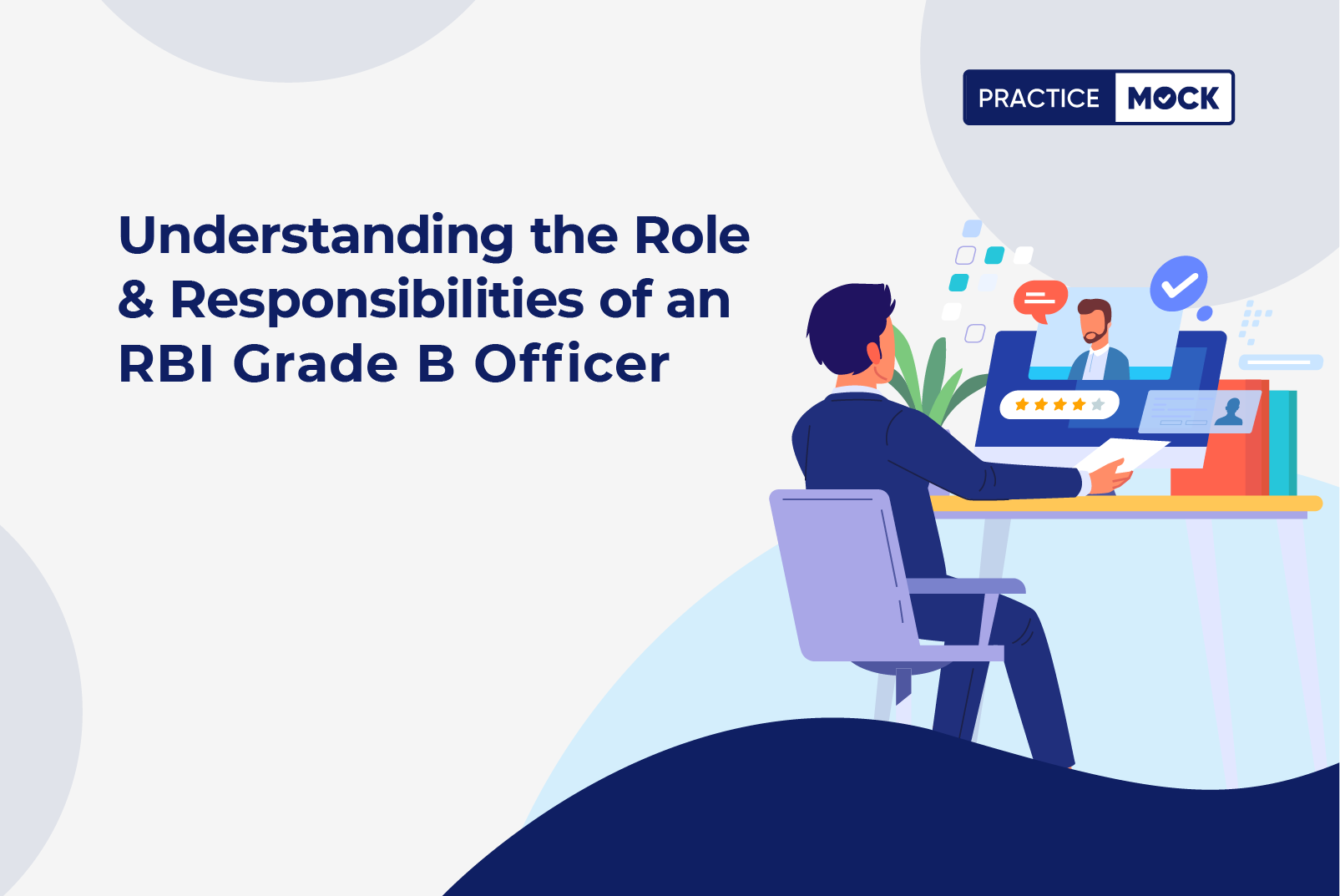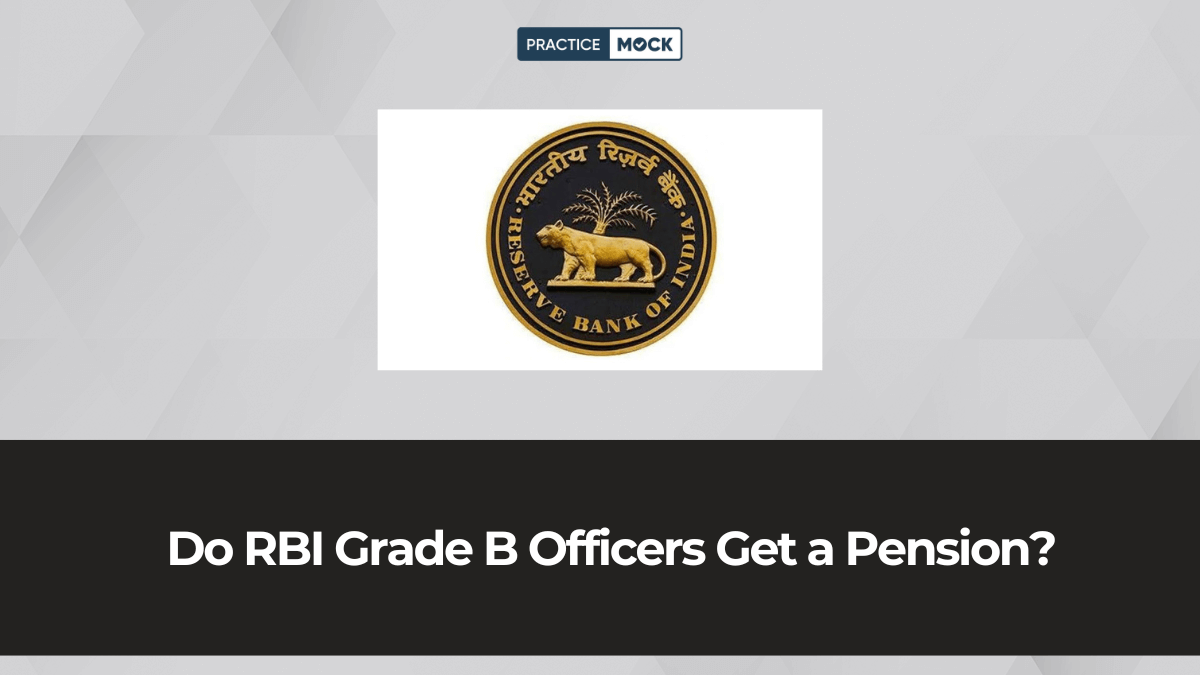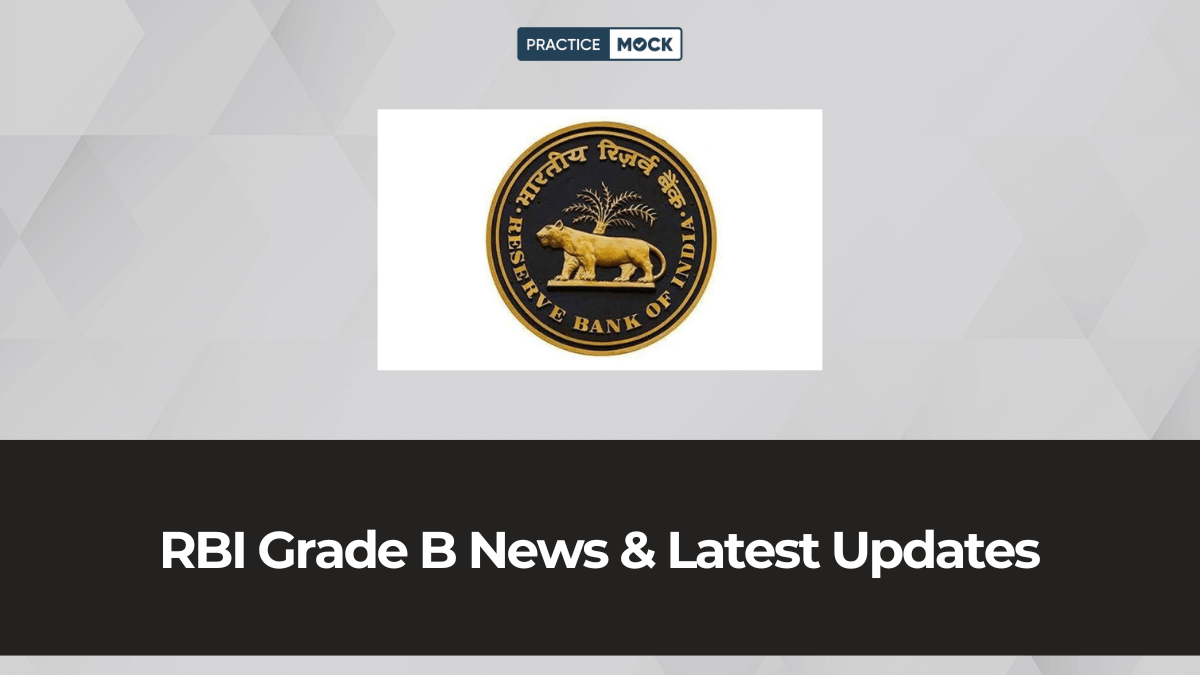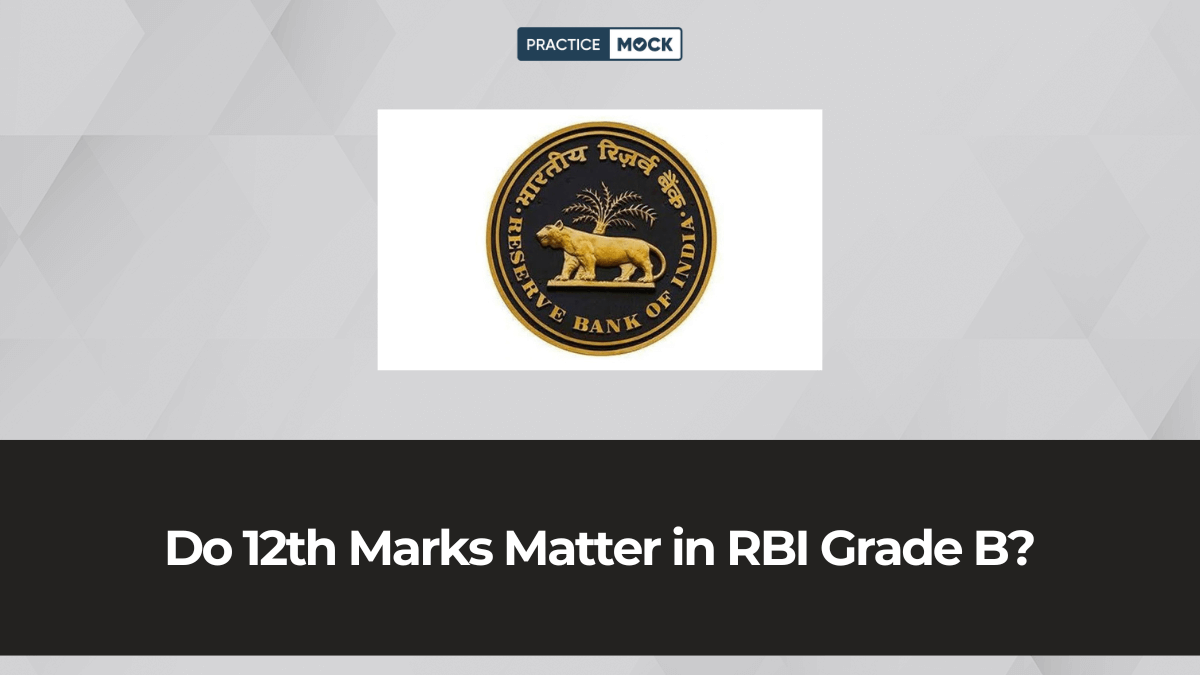

Not only is the exam for RBI Grade-B officer one of the hardest, but it is also one of the most coveted and well-paid occupations. People are curious about the RBI Grade-B officer remuneration. The RBI Grade B Officer is one of the most admired and sought-after profiles for all banking hopefuls who wish to work for the banking sector in India because of the extravagant lifestyle and associated benefits.
RBI Grade B Officer 2023 Free Mock Test
RBI Grade B 2023 Notification- Overview
| Organization | Reserve Bank of India |
| Name of Exam | RBI Grade B Officer Exam |
| Vacancies | 291 |
| Category | Bank Jobs |
| Online Registration Starts | 09th May to 09th June 2023 |
| Exam Level | National |
| Selection Process | Prelims-Mains-Interview |
| Job Location | All Over India |
| No of Attempts | 6 |
| Official Website | www.rbi.org.in |
RBI Grade B 2023 Practice Mock Tests
Some Important Duties For an RBI Grade B Officer:
- Monetary Policy: One of the primary responsibilities of an RBI Grade B officer is to assist in formulating and implementing the monetary policy of India. This involves analyzing economic indicators, assessing inflation trends, and recommending appropriate policy measures to maintain price stability and economic growth.
- Banking Supervision: RBI Grade B officers are involved in supervising and regulating banks and financial institutions. They ensure that banks comply with relevant laws, guidelines, and regulations. They conduct inspections, assess risks, and take necessary actions to maintain the stability and integrity of the banking system.
- Economic Research and Analysis: These officers engage in economic research, data analysis, and forecasting. They study economic trends, evaluate global and domestic factors impacting the Indian economy, and provide insights to policymakers for effective decision-making.
- Financial Markets: RBI Grade B officers play a crucial role in managing and regulating financial markets. They monitor and oversee the functioning of various segments, such as money markets, government securities, foreign exchange, and derivatives markets. They work towards maintaining market integrity and ensuring efficient operations.
- Currency Management: They are responsible for managing and maintaining the supply of currency notes and coins. This involves monitoring cash circulation, overseeing currency printing, managing currency distribution channels, and combating counterfeit currency issues.
- Developmental Functions: RBI Grade B officers participate in the formulation and implementation of policies related to the development of the financial sector. They work on initiatives aimed at financial inclusion, promoting digital payments, enhancing financial literacy, and fostering innovation in the financial sector.
- Regulatory Compliance: These officers ensure compliance with regulatory norms and guidelines by banks and financial institutions. They handle licensing, monitoring, and enforcement activities to maintain the integrity of the financial system and protect the interests of consumers.
- Liaison and Coordination: RBI Grade B officers act as a liaison between the RBI and various stakeholders, including government bodies, banks, financial institutions, and international organizations. They coordinate and collaborate with these entities on matters related to monetary policy, banking regulations, and financial stability.
Recent Posts
IOB LBO Notification 2025 Out for 400 Vacancies
The Indian Overseas Bank has released the IOB LBO Notification 2025 to recruit 400 candidates.…
UPSC CSAT Free Mock Test 2025 with Free Prep. Resources
In this blog, we have provided the UPSC CSAT Free Mock Test 2025 with Free…
RRB NTPC Application Status 2025, Check Your Application Status
The RRB will release the RRB NTPC Application Status 2025. In this blog, we will…
IBPS PO 2025 Free Study Resources, Attempt Now!
Here we are providing the IBPS PO 2025 free preparation resources, Candidates can get prelims…
IBPS PO Study Plan 2025 for 1 Month
The Institute of Banking Personnel Selection (IBPS) has released the IBPS PO 2025 notifications for…
100 + DI Repeated Questions for RRB PO 2025, Check How to Solve It Easily?
In this article we are providing the 100 + DI Repeated Questions for RRB PO…



